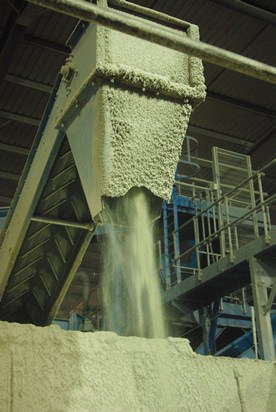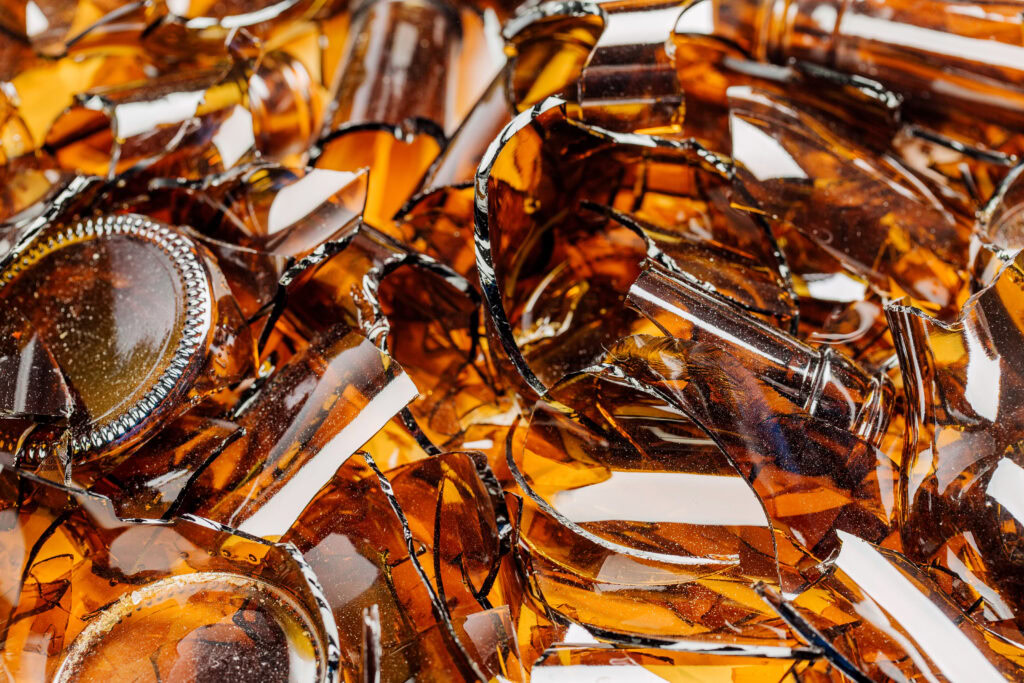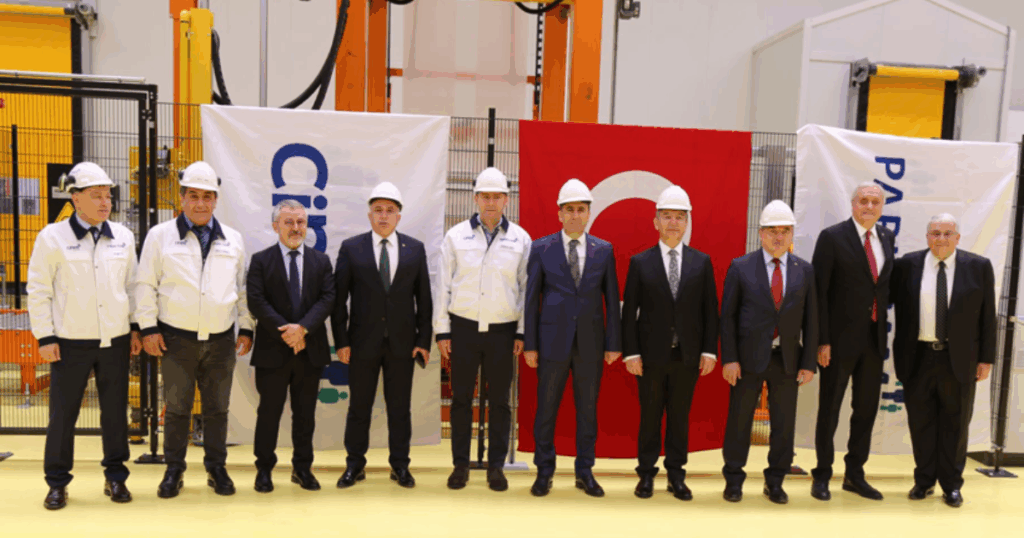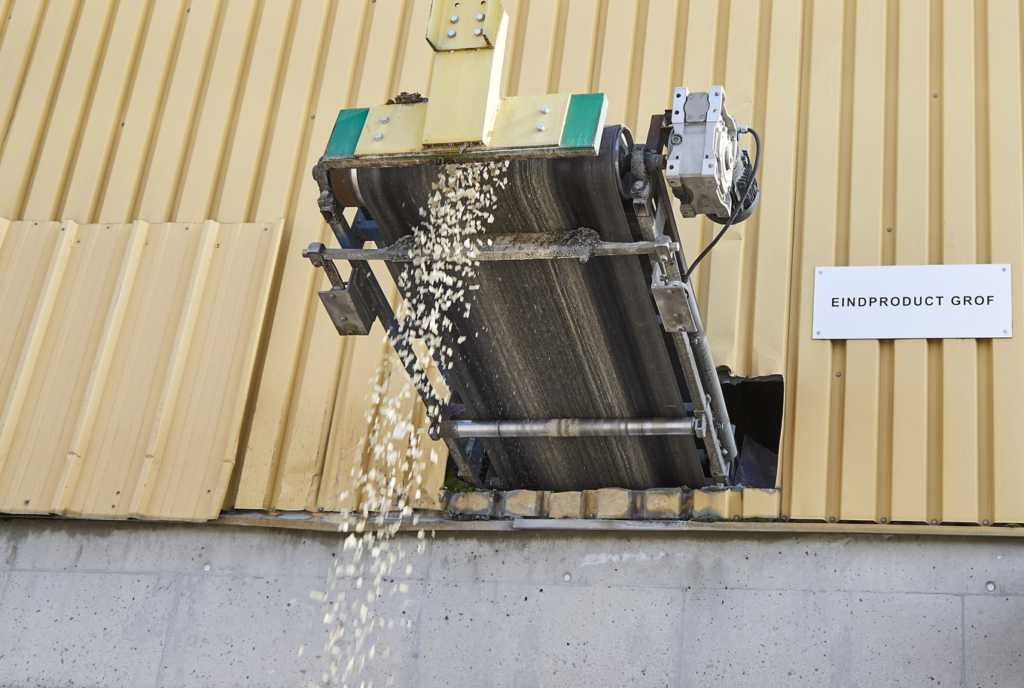The key to effective processing of fully commingled recyclable material is removing the glass as soon as possible, according to the author of a doctorate thesis on UK materials recycling facilities (MRFs).
And, author Benjamin Eule believes his analysis of MRF data has provided the basis for the development of a blue print processing block flow for commingled recyclate with glass, which using the right combination of effective optical sorters could boost the quality of MRF-sorted glass and benefit the glass recycling industry.

Dr Eule, who received his doctorate after completing the thesis last year, studied data from several MRFs in the South East of England which take fully commingled material, with the aim of finding the optimum process for processing commingled recyclable materials with glass.
He said: I hope that my work will go some way to develop and improve the recycling and recovery performances of UK MRFs and also alleviate the damage that glass can do to a recycling plant and to enabling processors to produce higher quality glass for recycling.
However, Dr Eule still believes that overall it was easier to collect glass separately from other recyclable materials.
He told letsrecycle.com: If I am absolutely honest, if I could process it I would take the glass out. From a pure engineering perspective in terms of how to process it and aside from the political aspect I think it is still easier to do it without glass as the glass purity is just going to be greater.
Findings
Dr Eules work, Processing of Commingled Recyclate Material at UK Material Recycling Facilities, is based on data from Viridors MRFs in: Ford, Peterborough, Crayford and Ipswich.
‘I hope that my work will go some way to develop and improve the recycling and recovery performances of UK MRFs and also alleviate the damage that glass can do to a recycling plant and to enabling processors to produce higher quality glass for recycling.’
Dr Benjamin Eule, Stadler Engineering
His thesis found that it was important to understand the input mix material density and composition in order to apply the correct processing steps required to provide product purity and economic hourly throughput.
The challenge in processing commingled material with glass, Dr Eule found, is in the mixture of containerised material and different sources of paper and card such as news and pamphlets, grey card, office paper, corrugated card board and glass.
Other challenges listed in the thesis include: separation of plastic bags and paper; isolating news and pams paper from lower grade paper; input contamination (consumers putting incorrect items out for recycling); refuse vehicles not being used solely for recycling, causing contamination; recovering glass from other fines while maintaining purity; and maintaining purity of paper while keeping contamination and manual picking to a minimum.
So as to reduce input contamination before material reaches a MRF, Dr Eule recommends a manual picking pre-sort station, capable of removing large contamination which could block or damage the process plant.
Finance
However, Dr Eule stresses that a number of other differing factors can affect potential to boost quality from MRFs such as capital expenditure and local and political requirements and that his model is performance based.
Asked whether it was possible to recover high quality glass from fully commingled material, Dr Eule told letsrecycle.com: I think you can achieve this, you just have to be aware that screening out the glass from comingled material which is relatively dense and you cannot put contamination in it needs a lot more processing steps.
Although investment is often needed to boost output from fully-commingled MRFs, he also said it was financially achievable to produce quality glass from MRFs, but that it was easier for facilities taking in higher tonnages on longer-term contracts as they are able to invest more time and money.
While completing his doctorate in engineering at Aachen University in Germany, Dr Eule has also worked for more than two years as global technical manager at sorting equipment and treatment technology firm Stadler Engineering and is currently based in Ashford, Kent.
Related Links
Speaking about his thesis, Dr Eule said: It is based on operational data on some facilities in the South East which have been modified to deal with commingled glass. The key emphasis is on getting the glass out as soon as possible, which helps keep maintenance costs low, and trying to improve the glass for quality of material.
Much debate has taken place over the impact on both the quality of glass and other materials in processing fully-commingled material.
Most recently, East Cambridgeshire council has been in disagreement with paper recycler Aylesford Newsprint, with the latter stating that collecting glass and paper together was akin to vandalism (see letsrecycle.com story).







Subscribe for free